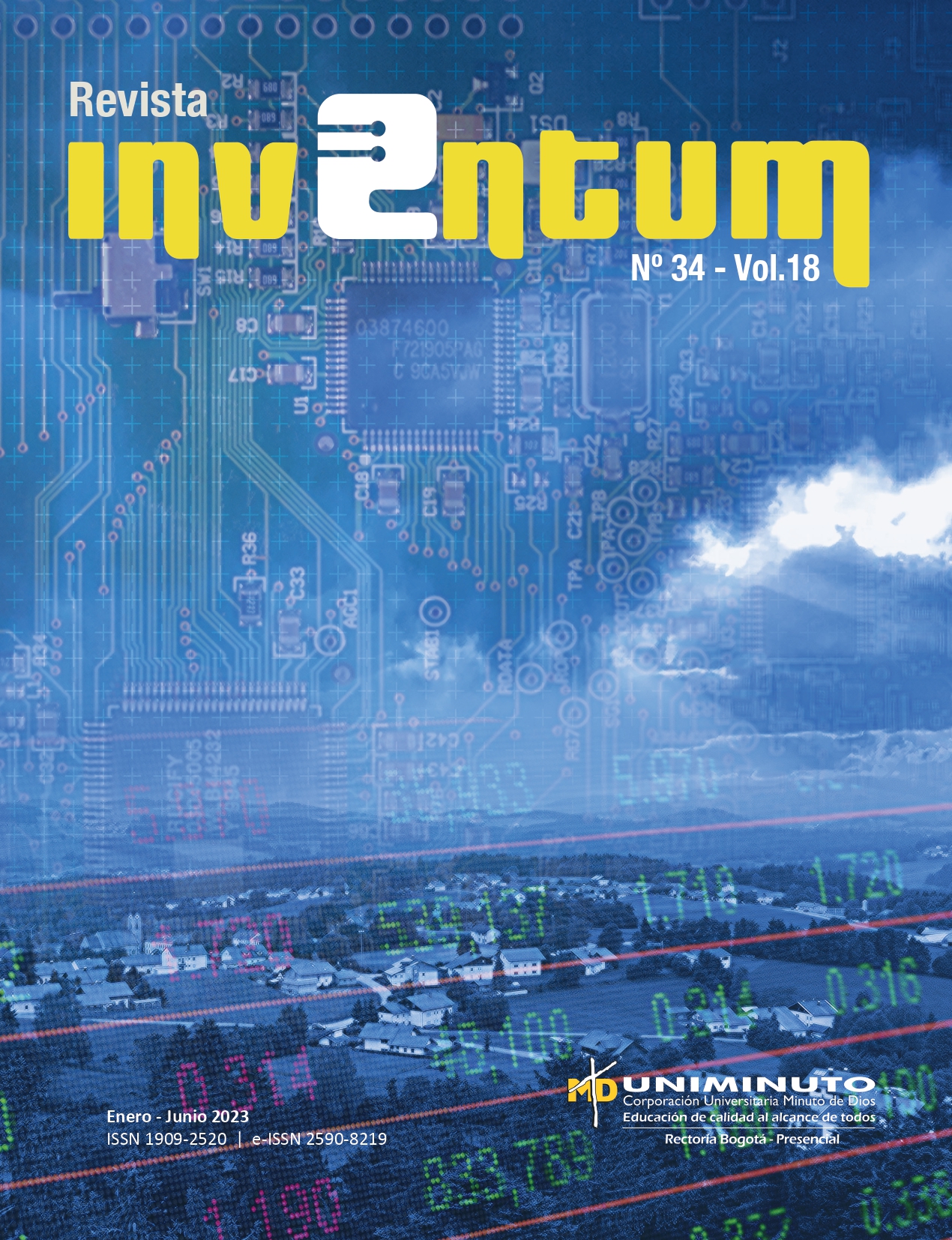Ferramentas online colaborativas para o ensino de física: circuitos RC
Conteúdo do artigo principal
Resumo
Este artigo descreve o potencial da simulação, com TinkerCad® por meio de um circuito RC, em combinação com Python para aprendizado de física de alto nível. Esta proposta insere-se no contexto da atividade experimental típica da epistemologia da física; na situação gerada pela pandemia associada ao COVID-19. Os dados transitórios de tensão e corrente são obtidos em duas montagens, real e simulada, que serão analisadas com Python ® em um editor online. Os resultados indicam que a articulação adequada do TinkerCad e do Python, em configurações simuladas, são promissoras para o aprendizado colaborativo de física a partir da atividade experimental.
Detalhes do artigo
Seção
Se solicita a los autores que diligencien el documento de cesión de derechos de autor sobre el artículo, para que sea posible su edición, publicación y distribución en cualquier medio y modalidad: medios electrónicos, CD ROM, impresos o cualquier otra forma, con fines exclusivamente científicos, educativos y culturales
- La obra pertenece a UNIMINUTO.
- Dada la naturaleza de UNIMINUTO como Institución de Educación Superior, con un modelo universitario innovador para ofrecer Educación de alta calidad, de fácil acceso, integral y flexible; para formar profesionales altamente competentes, éticamente responsables y líderes de procesos de transformación social, EL CEDENTE ha decidido ceder los derechos patrimoniales de su OBRA, que adelante se detalla para que sea explotado por ésta
- El querer de EL CEDENTE es ceder a título gratuito los derechos patrimoniales de la OBRA a UNIMINUTO con fines académicos.
Como Citar
Referências
REFERENCIAS
D. R. Sokoloff, K. Cummingsy, and R. K. Thornton, Interactive Lecture Demonstrations, Active Lear-ning in Introductory Physics, Hoboken, NJ: Wiley, 2004. (Wiley & Sons, Incorporated, 2004).
D. R. Sokoloff and R. K. Thornton, “Using interactive Lecture demostrations to creative an active learning environment”, Phys. Teach., vol. 35, n.º 6, pp. 340-347, sep. (1997), 340, .org/doi: 10.1119/1.2344715
J. D. G. Agudelo and G. G. García, “Aprendizaje significativo a partir de prácticas de laboratorio de precisión”, Latin-American J. Phys. Educ., vol. 4, n.º 1, (2010), pp. 149-152, ene. 2010. http://www.lajpe.org/jan10/22_Gabriela_Garcia.pdf
E. Martinez, V. Carbonell, M. Florez, and J. Amaya, “Simulations as a new physics teaching tool”, Comput. Appl. Eng. Educ., vol. 18, n.º 4, , pp. 757-761, dic. 2010, 757, doi: 10.1002/cae.20266.
K. E. Chang, Y. L. Chen, H. Y. Lin, yand Y. T. Sung, “Effects of learning support in simulation-based physics learning”, Comput. Educ., vol. 51, n.º 4, pp. 1486-1498, dic. (2008), 1486, doi: 10.1016/j.compedu.2008.01.007.
J. O. Breto, M. L. M. Pérez, yand L. Jorge, “Simulaciones sobre EJS para aprender fFísica”, Latin-American J. Phys. Educ., vol. 13, n.º 2, pp. 1-6, jun. (2019), 1 https://dialnet.unirioja.es/servlet/articulo?codigo=7325395.
A. Raviolo and M. Alvarez, “Uso y creación de simulaciones en la formación del profesorado: Unidad didáctica sobre el movimiento oscilatorio armónico”, Lat. Am. J. Phys. Educ., vol. 6, nº 4, pp. 628-638, dic. (2012), http://www.lajpe.org.
R. Haryadi and H. Pujiastuti, “PhET simulation software-based learning to improve science process skills”, J. Phys. Conf. Ser., vol. 1521, n.º 2, art. 022017, (2020), doi: 10.1088/1742-6596/1521/2/022017.
M. Spodniaková-Pfefferová, “Computer simulations and their influence on students’ understanding of oscillatory motion”, Informatics Educ., vol. 14, n.º 2, pp. 279-289, oct. (2015), 279, doi: 10.15388/infedu.2015.16.
I. Kotseva, M. Gaydarova, K. Angelov y, and F. Hoxha, “Physics experiments and demonstrations based on Arduino”, AIP Conf. Proc., vol. 2075, n.º 1, p. 180020, feb. 20192075, (2019), 1, doi: 10.1063/1.5091417.
F. Önder, E. B. Önder y, and M. Oğur, “Determination of Diode Characteristics by Using Arduino”, Phys. Teach.,vol. 57, n.º 4, pp. 244-245, abr. (2019), 244, doi: 10.1119/1.5095382.
A. Moya, “Studying Avogadro’s Law with Arduino”, Phys. Teach., vol. 57, n.º 9, pp. 621–623, dic. (2019), 621, doi: 10.1119/1.5135793.
F. Önder, E. B. Önder y, and M. Oğur, “Determining Transistor Characteristics with Arduino”, Phys. Teach., vol. 58, n.º 6, pp. 422-424, sep. (2020), 422 doi: 10.1119/10.0001842.
N. Pereira, “Measuring the RC time constant with Arduino”, Phys. Educ., vol. 51, n.º 6, art. (2016)
, sep. 2016, doi:10.1088/00319120/51/6/065007.
A. Moya, “An Arduino experiment to study charge-voltage relationships in capacitors”, Phys. Educ., vol. 54, n.º 1, art. 015005, nov. (2019) 1, doi: 10.1088/1361-6552/aaea1d.
C. Galeriu, C. Letson y, and G. Esper, “An Arduino Investigation of the RC Circuit”, Phys. Teach., vol. 53, n.º 5, (2015)pp. 285-288, 2015, doi: 10.1119/1.4917435.
A. Moya, “Connecting Time and Frequency in the RC Circuit”, Phys. Teach., vol. 55, n.º 4, (2017) pp. 228-230, abr. 2017, doi: 10.1119/1.4978721.
P. Rocca, F. Riggi y, and C. Pinto, “Remotely teaching Arduino by means of an online simulator”, Phys. Educ., vol. 55, n.º 6, art. (2020), 63003, sep. 2020, doi: 10.1088/1361-6552/abaa21.
J. Payne, Python for Teenagers Learn to program like a Superhero!, (Deerfield Beach, FloridaFL, USA.: Apress, 2019).





